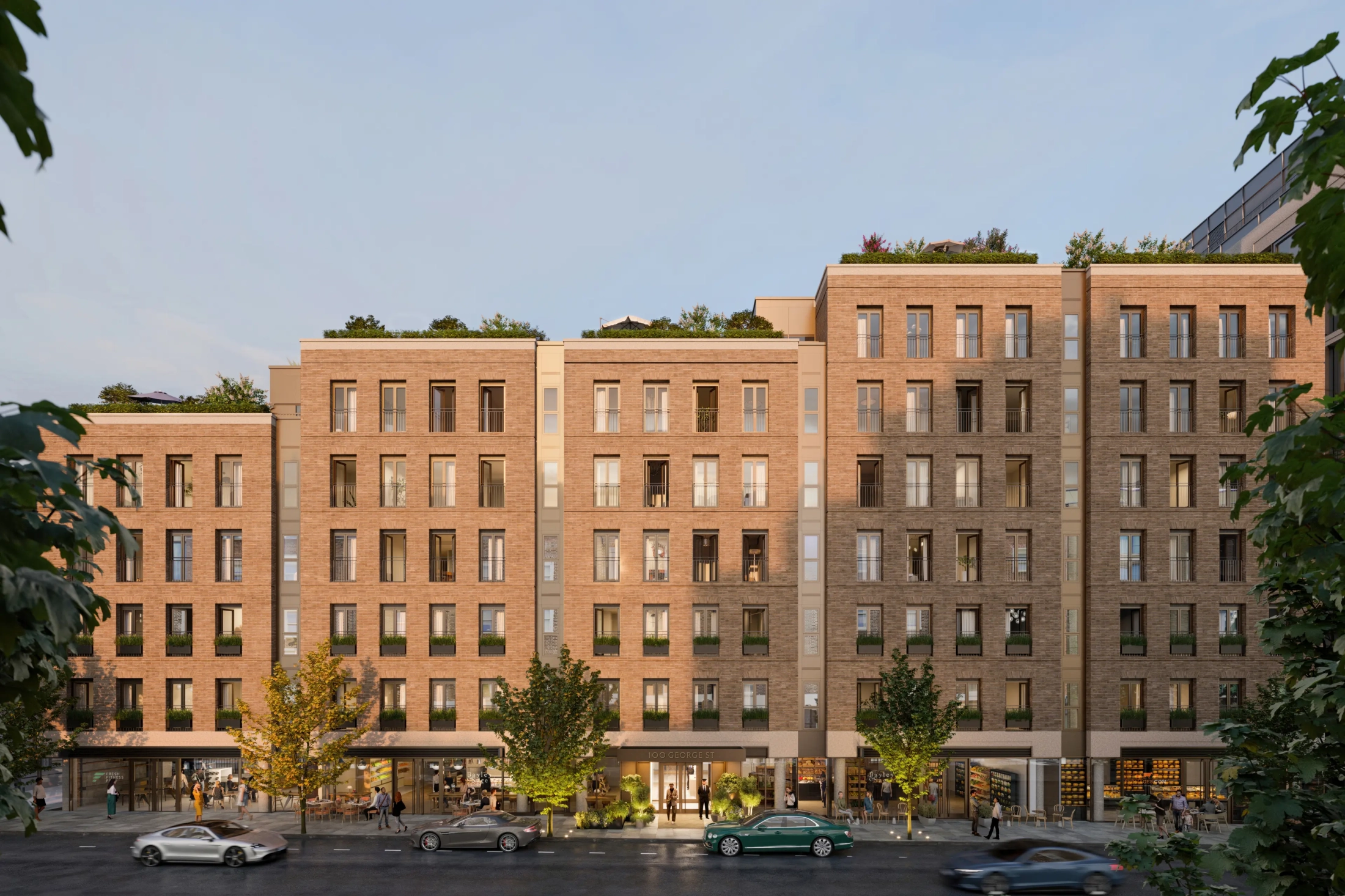
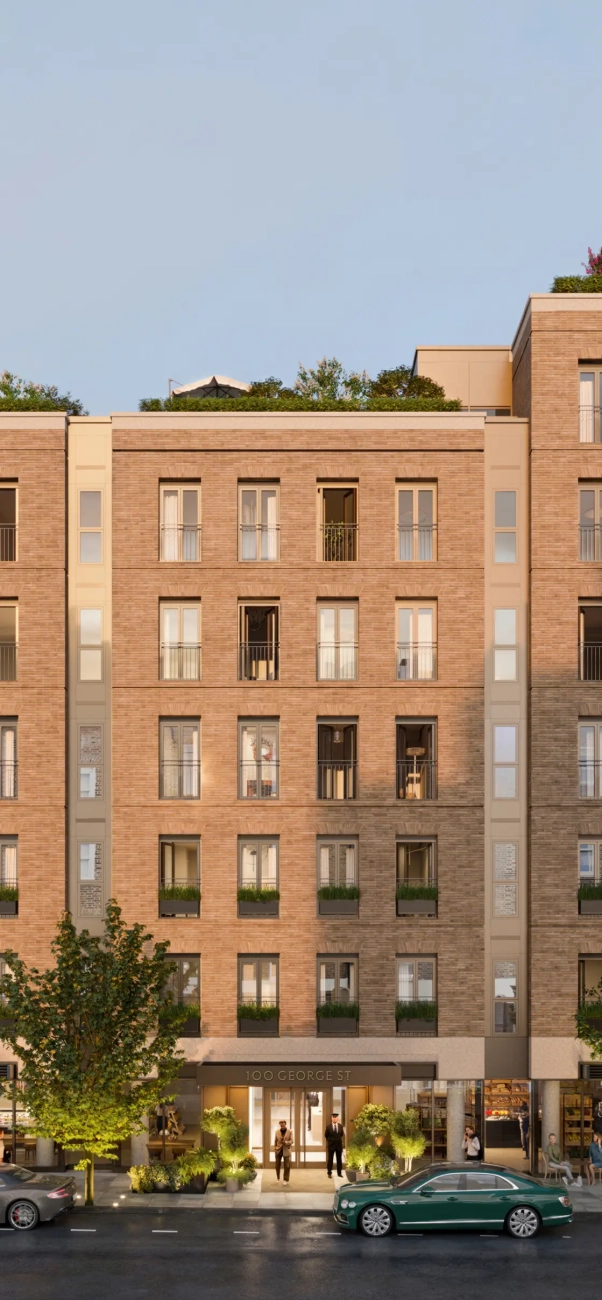
Discover a central London lifestyle complemented by stellar amenities and services in an urban village with Georgian roots. Introducing 41 extraordinary homes designed by Hopkins Architects, 100 George Street is an integral part of Native Land and Derwent London’s new Marylebone development at the heart of The Portman Estate.
CONVENIENCE & CHARACTER
Step outside 100 George Street into one of London’s most desirable neighbourhoods. Adjacent to Mayfair and encircled by the Royal Parks, Marylebone blends historical charm with contemporary energy, its tree-lined streets placing cultural icons beside vibrant cafes and every possible convenience.
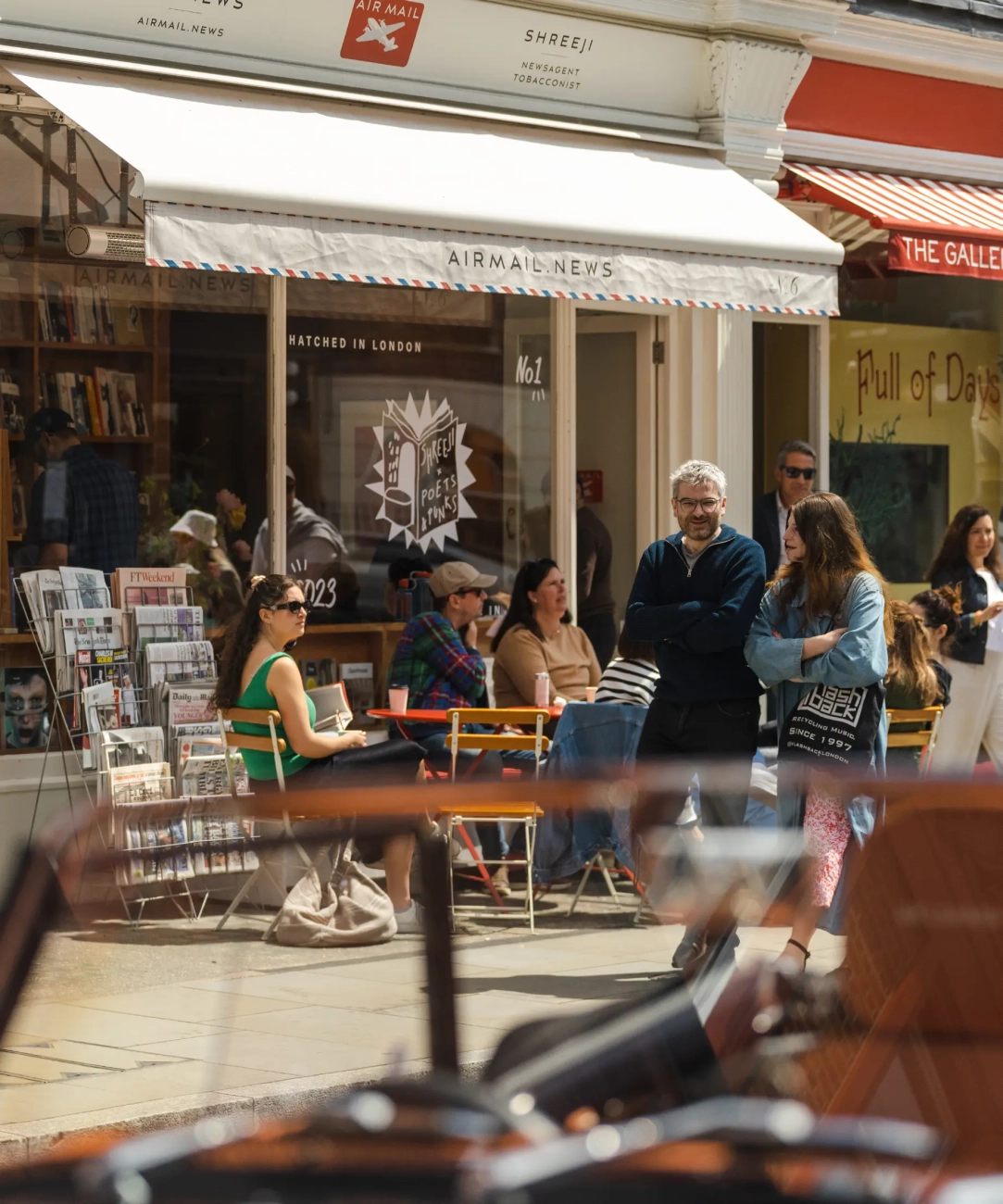
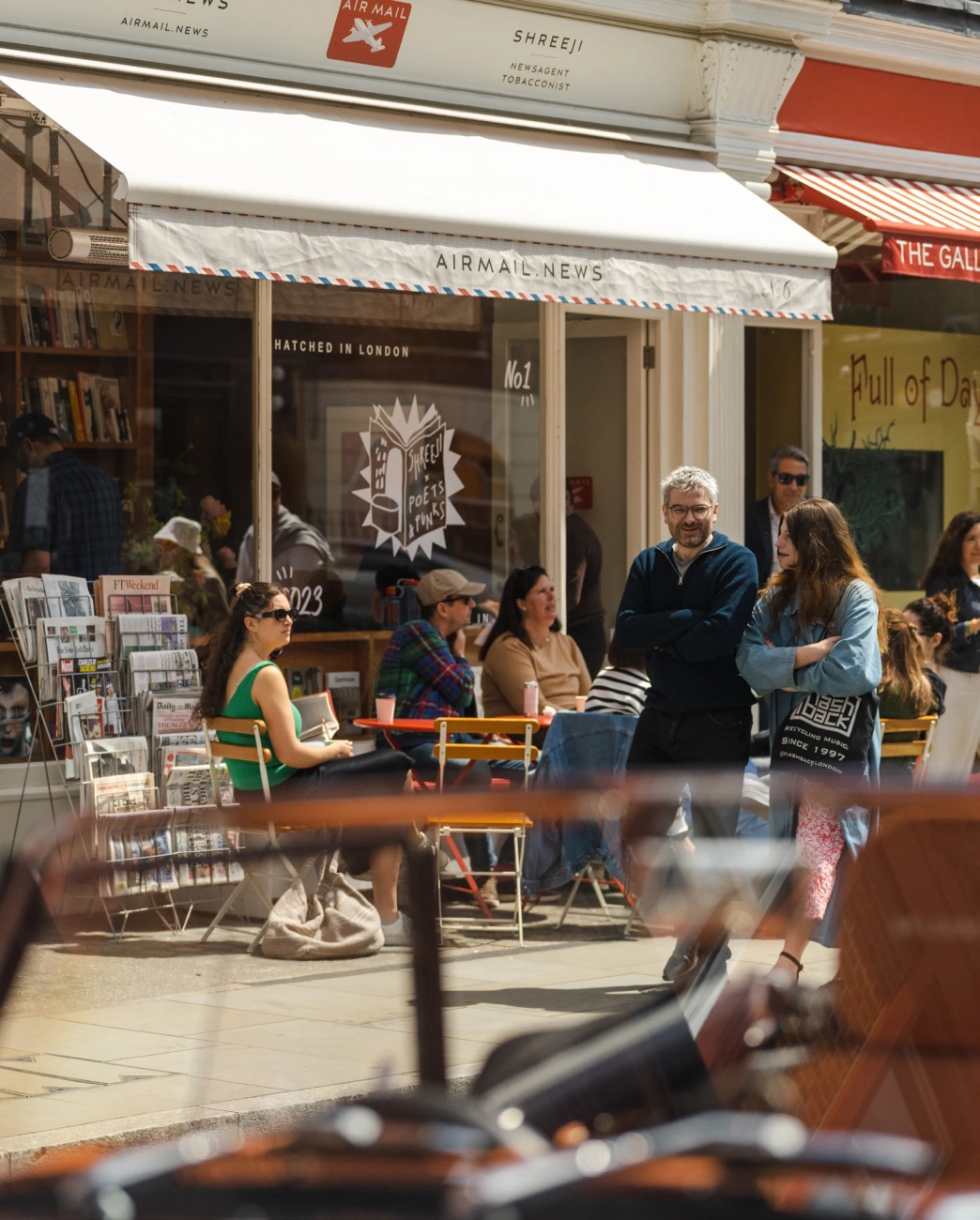
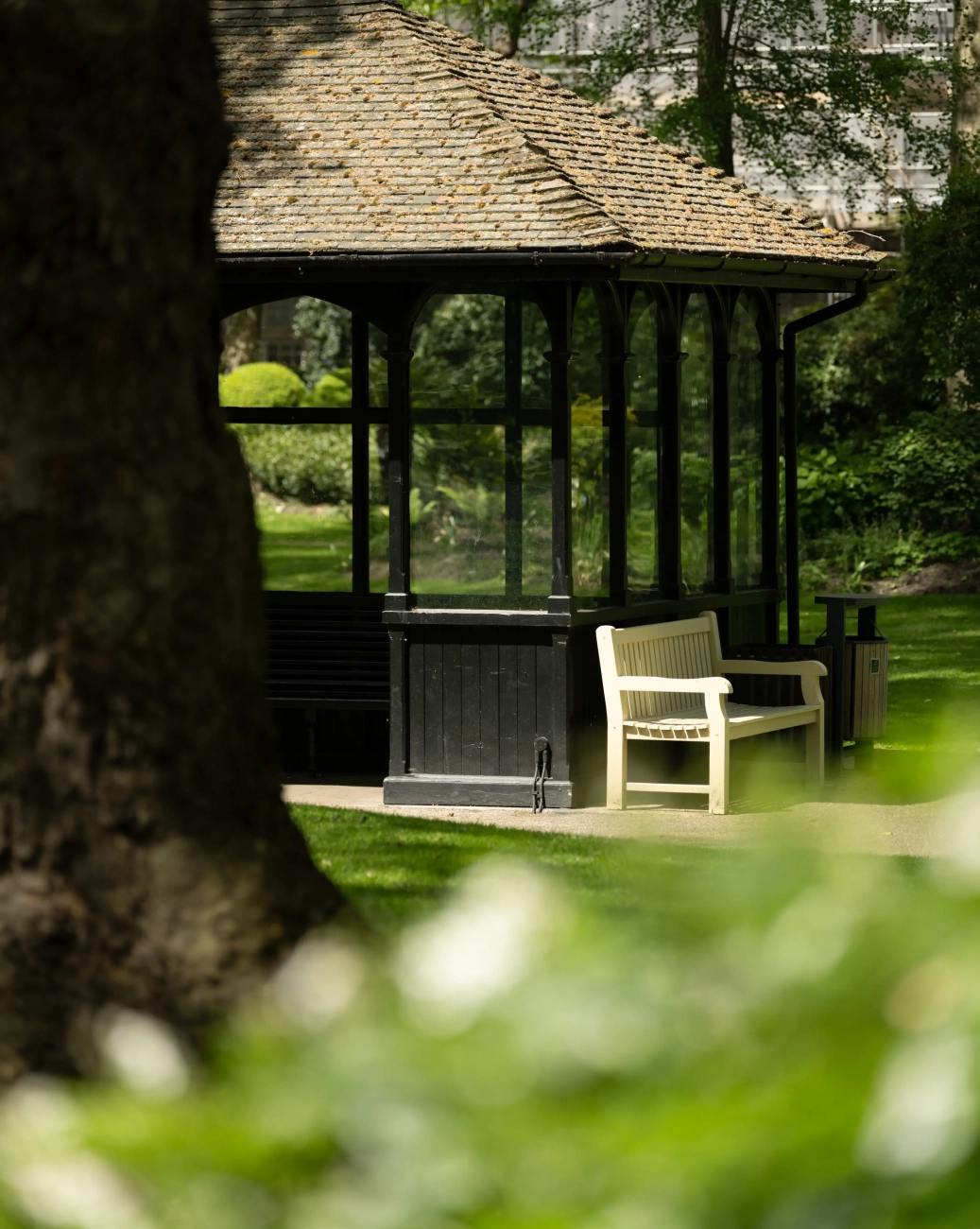
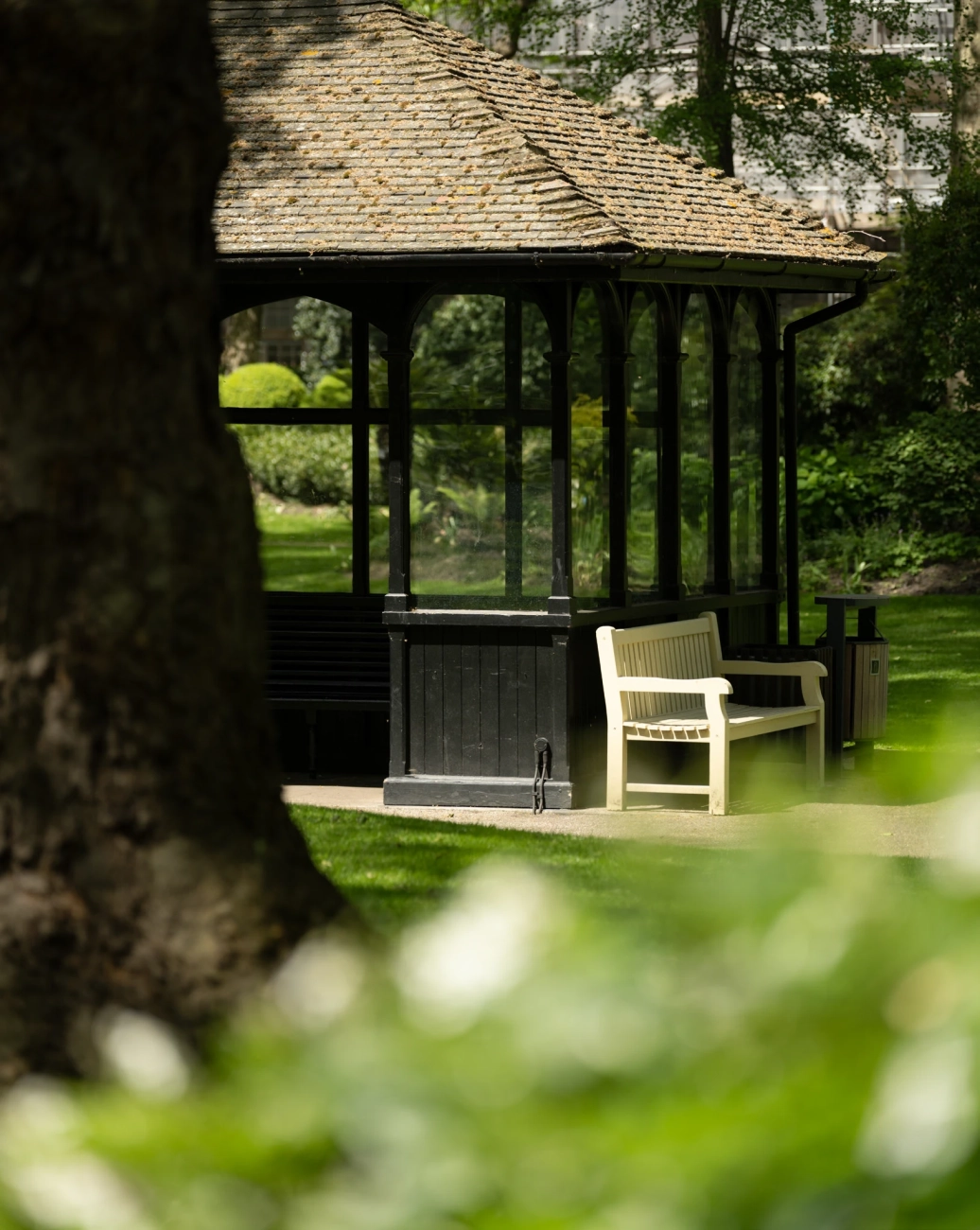
CENTRAL TO AN
INSPIRED DESTINATION
Enjoy access to a curated selection of enticing retailers and restaurants downstairs, all opening onto a pedestrianised courtyard that extends the entire northern length of 100 George Street. Beautifully landscaped with integrated outdoor seating, this space is the convivial focal point of the 200,000 sq ft development.


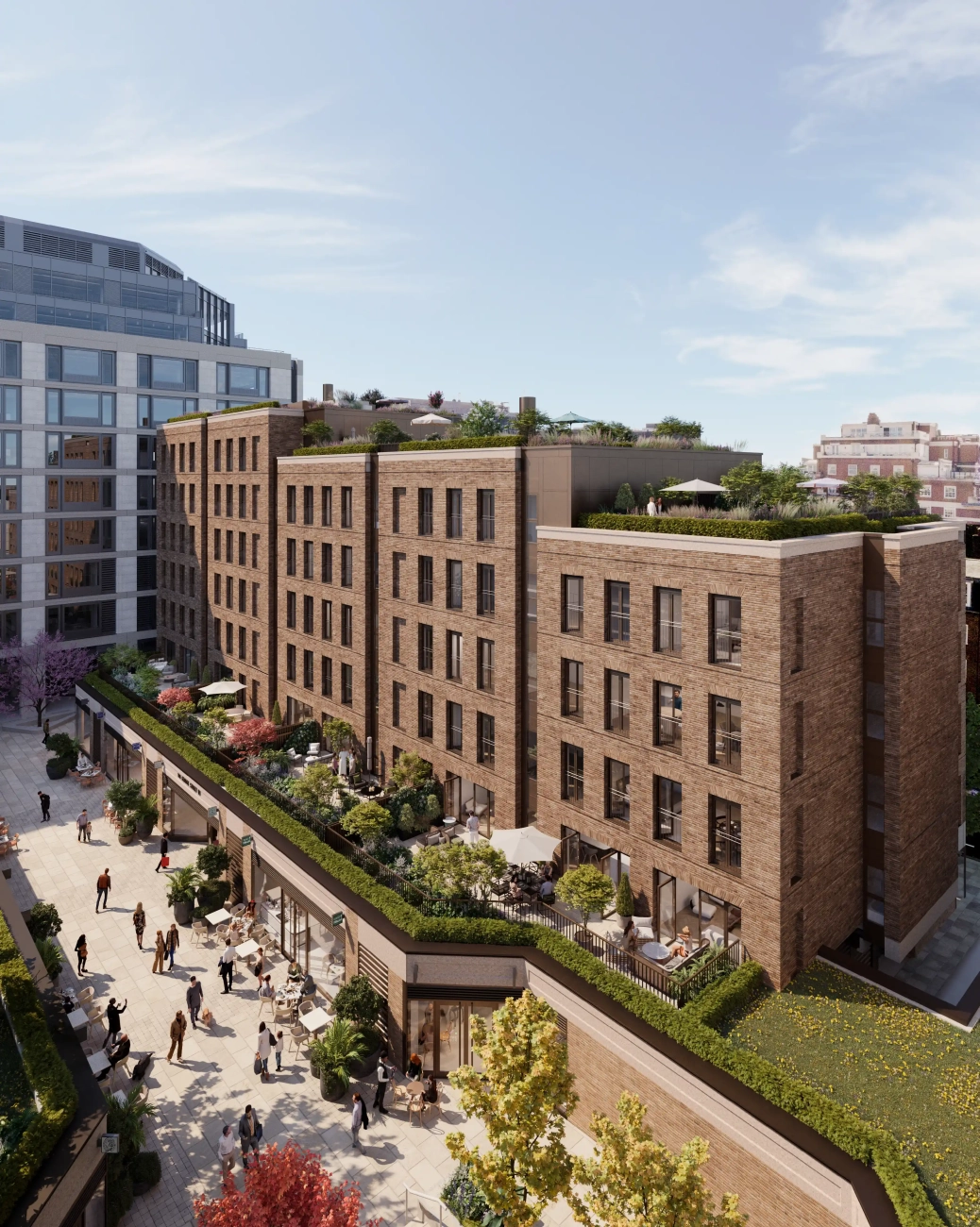
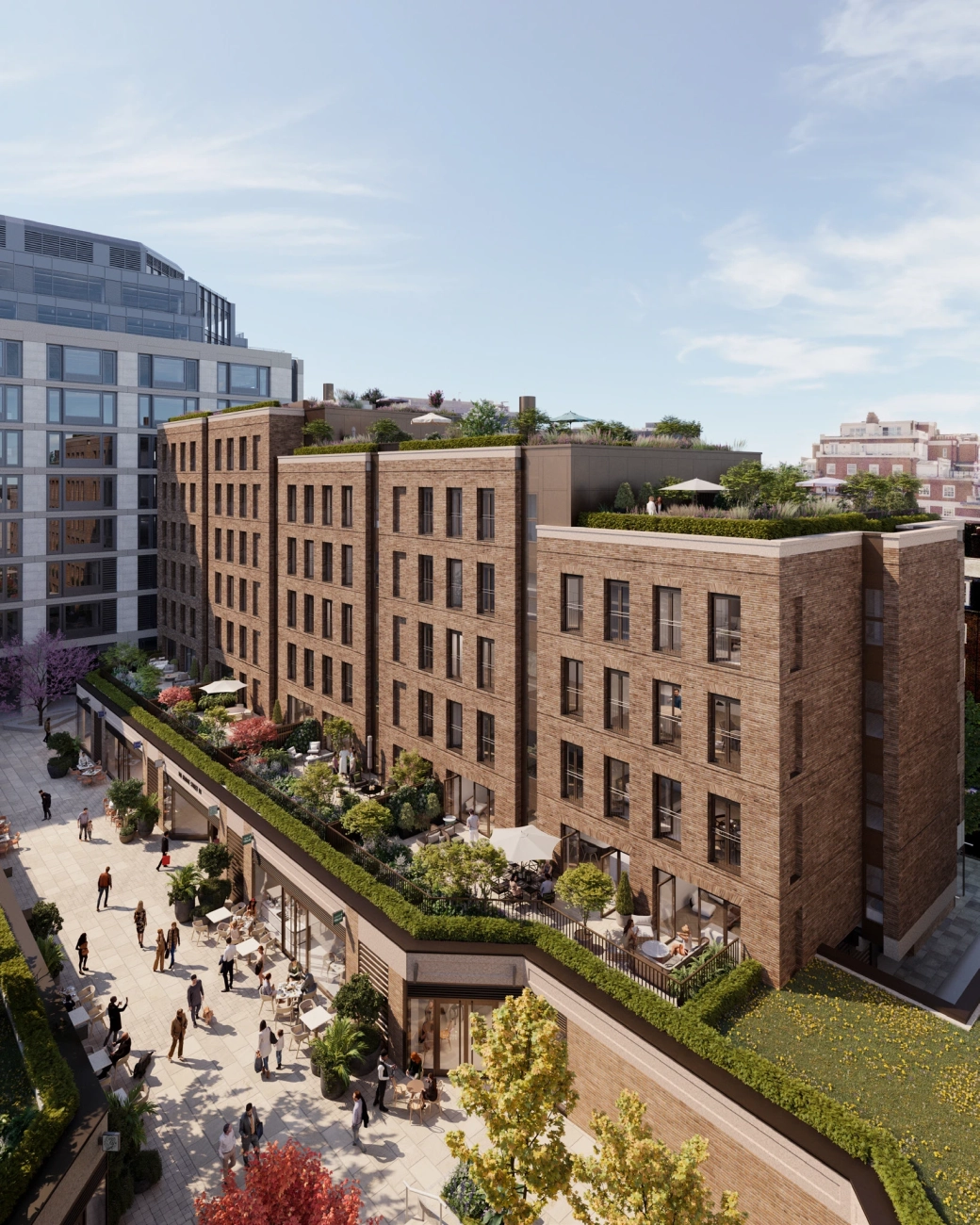
PROXIMITY TO NATURE
Breathe easy with nature as your neighbour in a home that respects and bolsters the green legacy of Marylebone. With its own rooftop gardens and leafy terraces flanked by the masterplan’s garden courtyard, 100 George Street is a stroll from the neighbourhood’s verdant squares, Regent’s Park to the north and Hyde Park moments to the south.
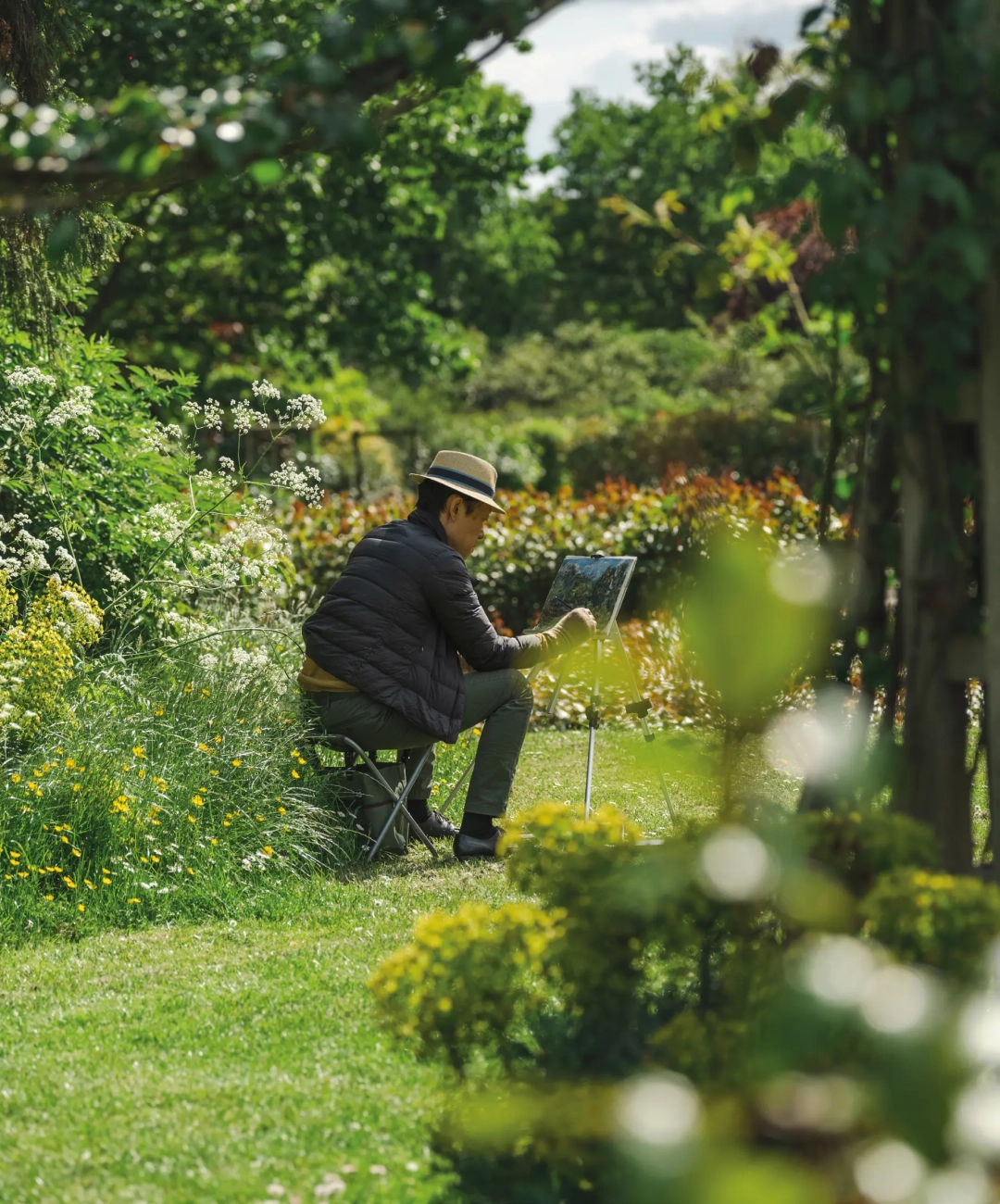
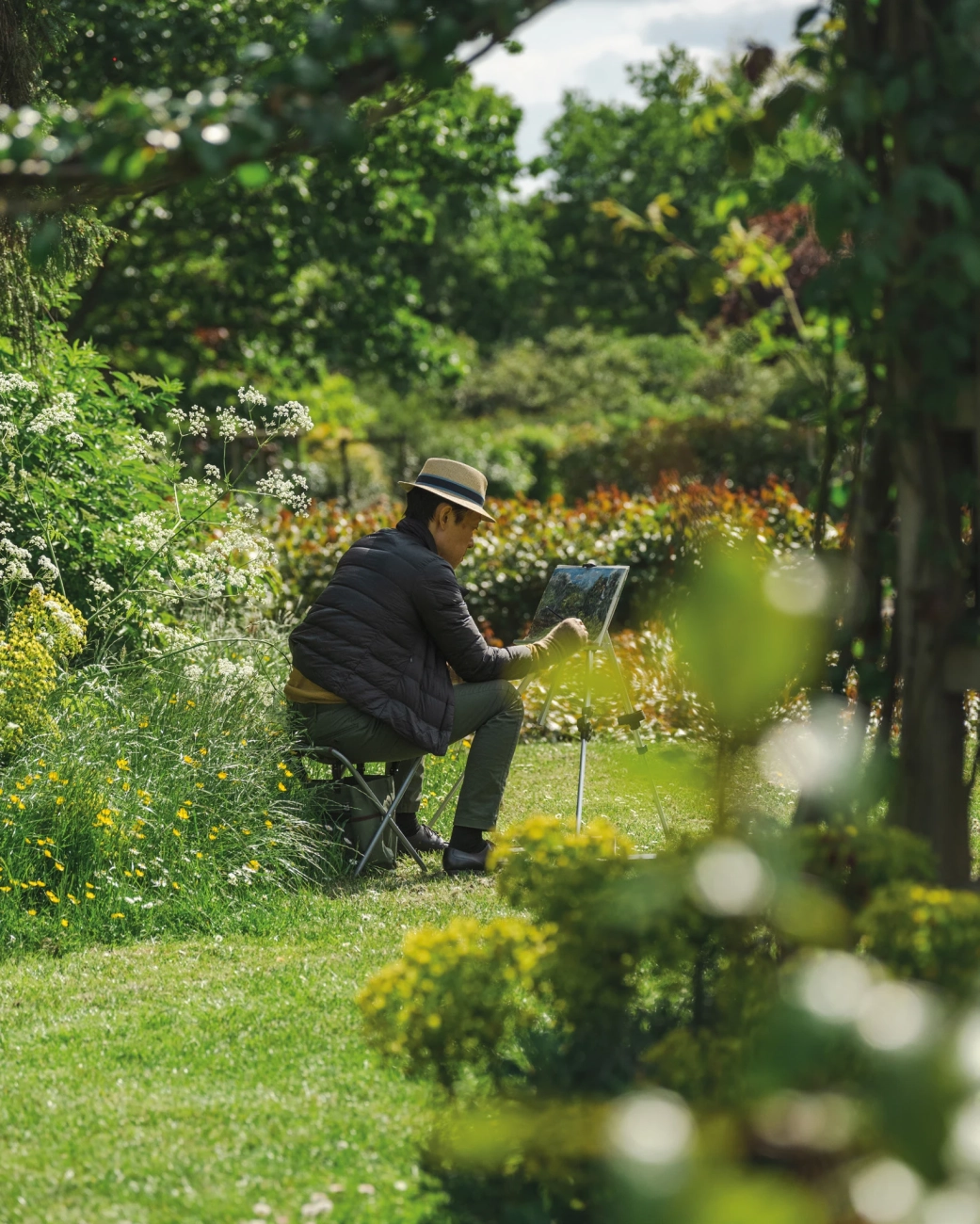
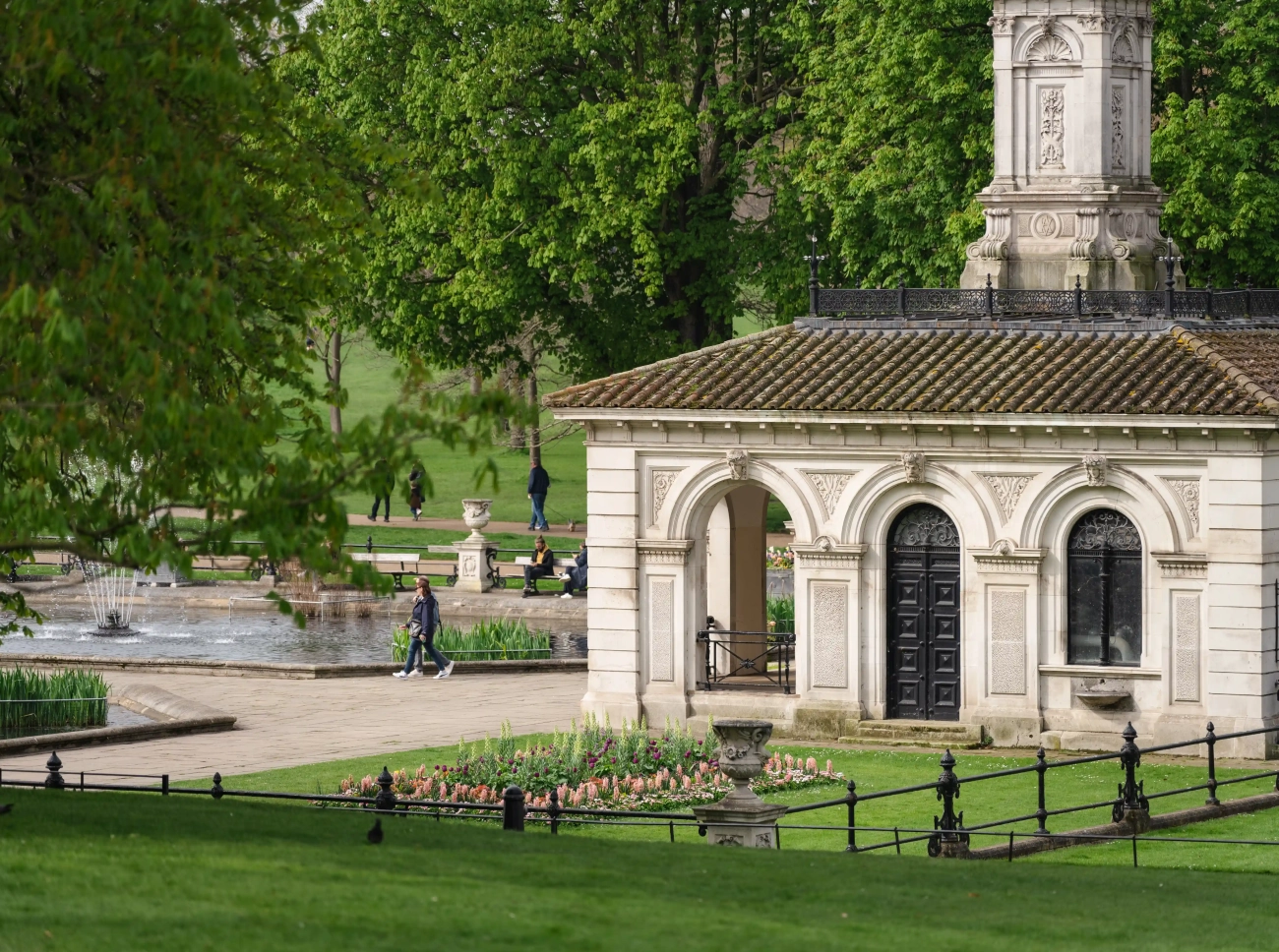
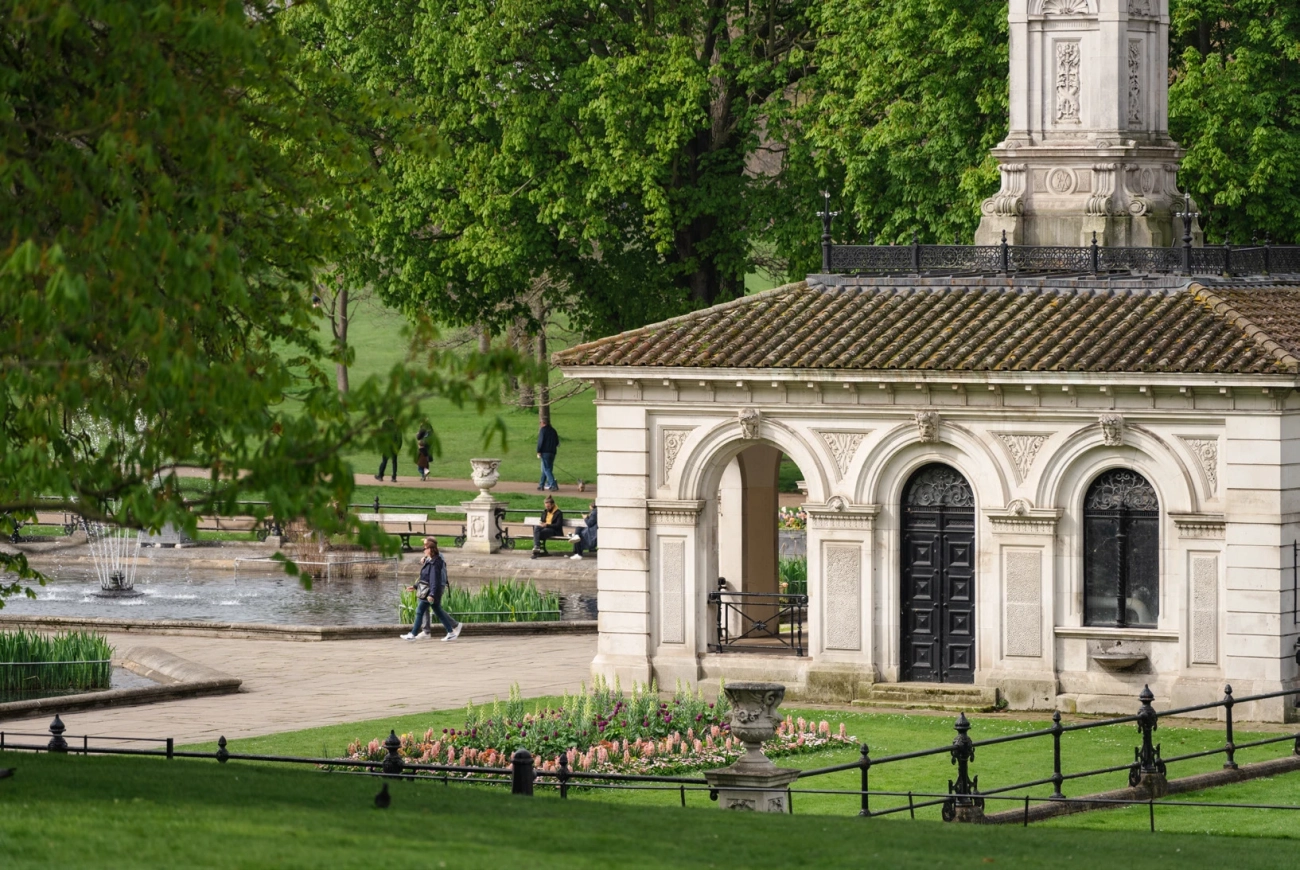
COMMITTED TO THE FUTURE
100 George Street has been carefully designed to deliver elevated sustainability standards, meeting Home Quality Mark (HGM) 4* inside and out. Beyond its biodiverse roofscape, sustainable transport options include electric vehicle recharging stations, secure cycle parking and a new Santander cycle docking station.
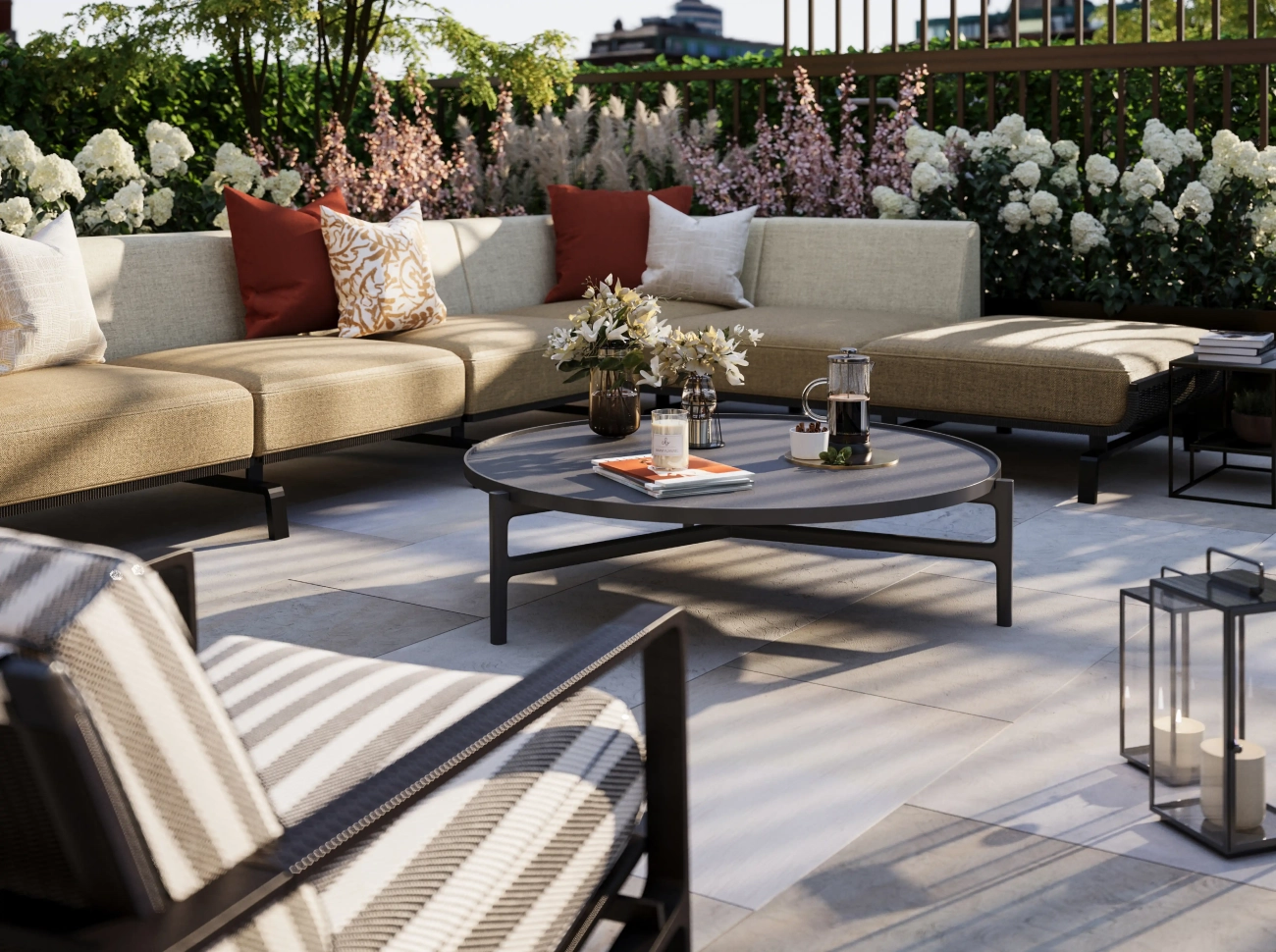
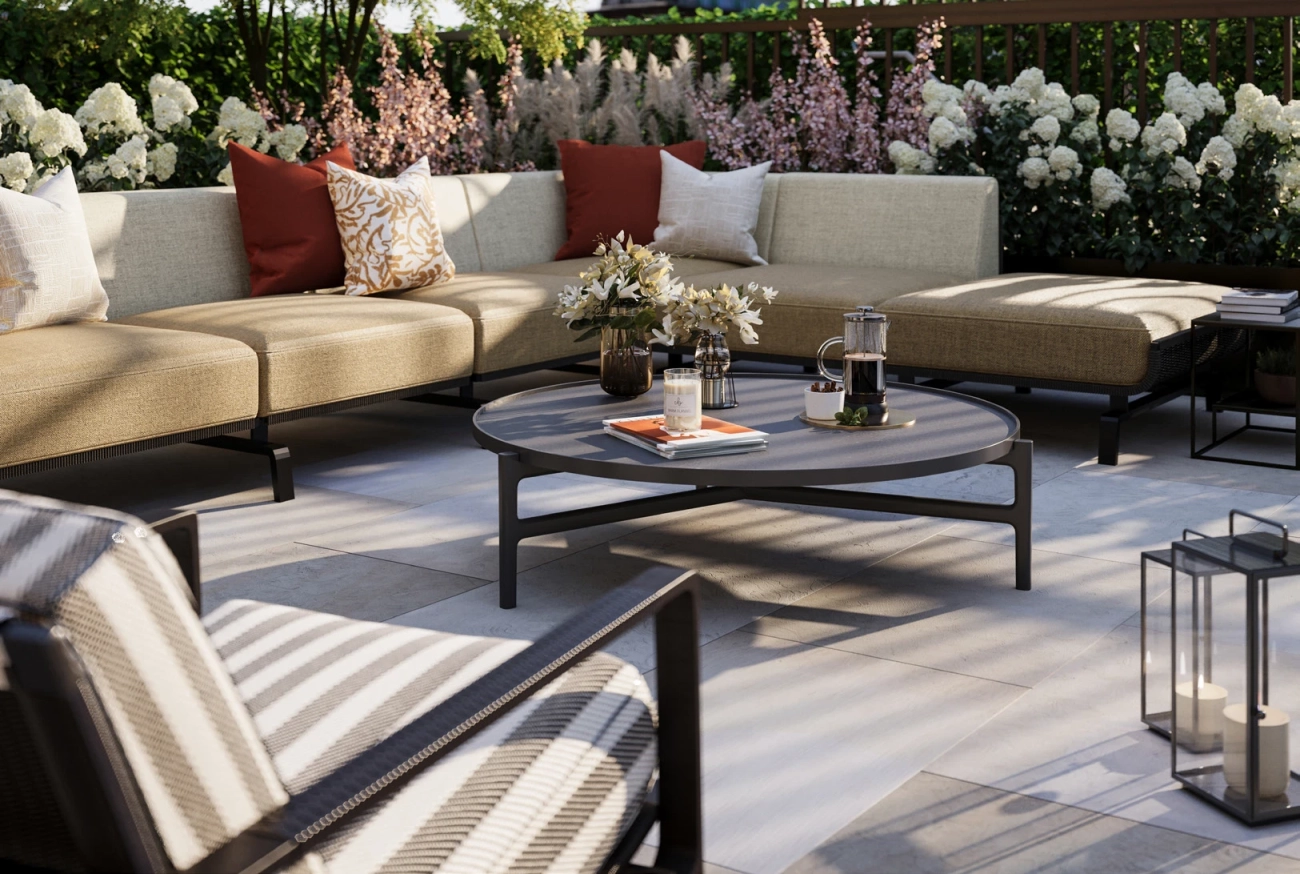
A VISIONARY COLLABORATION
The notable British developers behind Marylebone’s new masterplan have reimagined contemporary urban living in one of London’s most historic neighbourhoods.
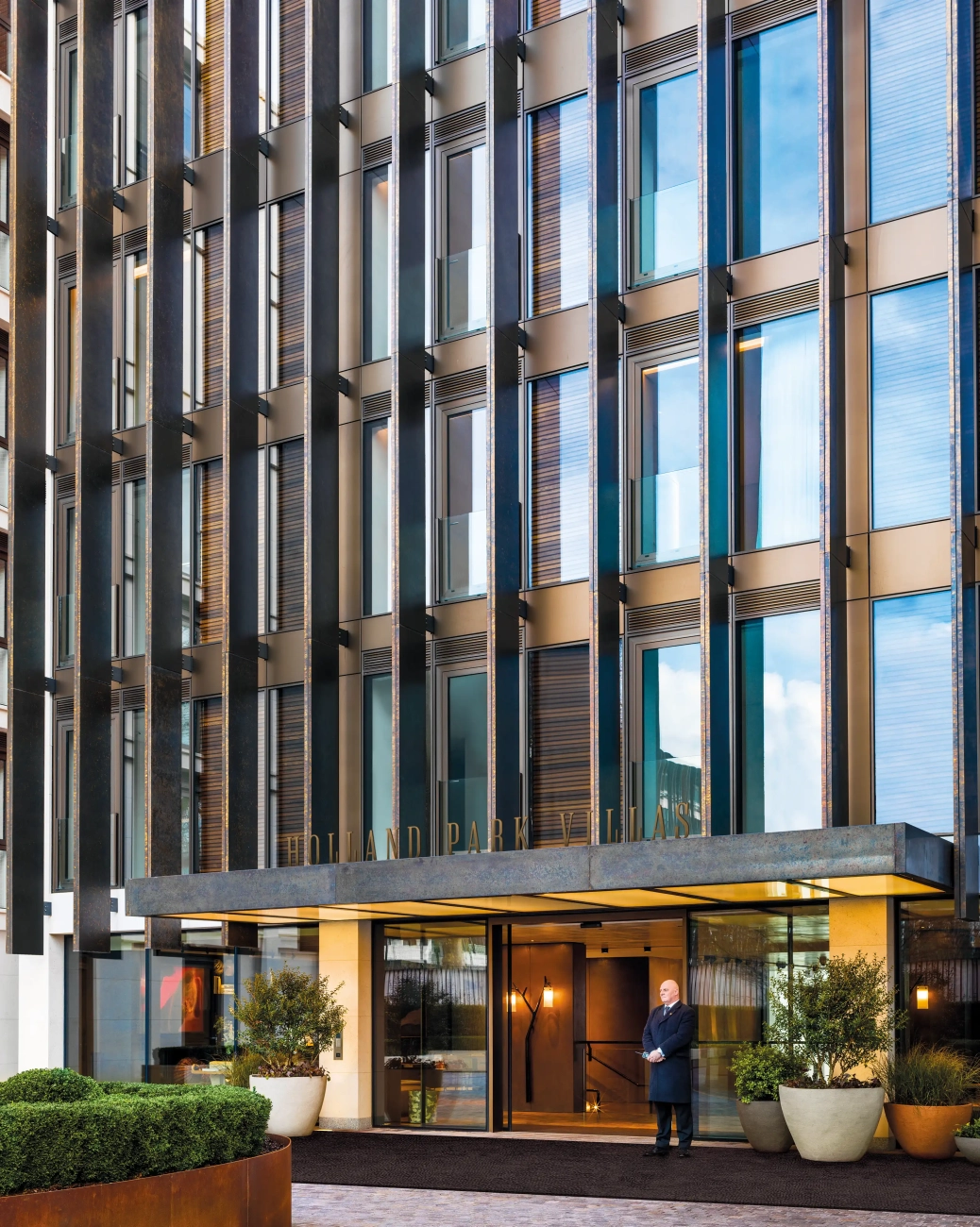
Native Land has delivered high-quality, versatile developments across London since 2003, overseeing every aspect from acquisition through to marketing. Past projects include NEO Bankside, Burlington Gate, Holland Park Villas and Cheyne Terrace, while future projects range from the redevelopment of South Kensington Tube station to Kilmuir House in Belgravia.
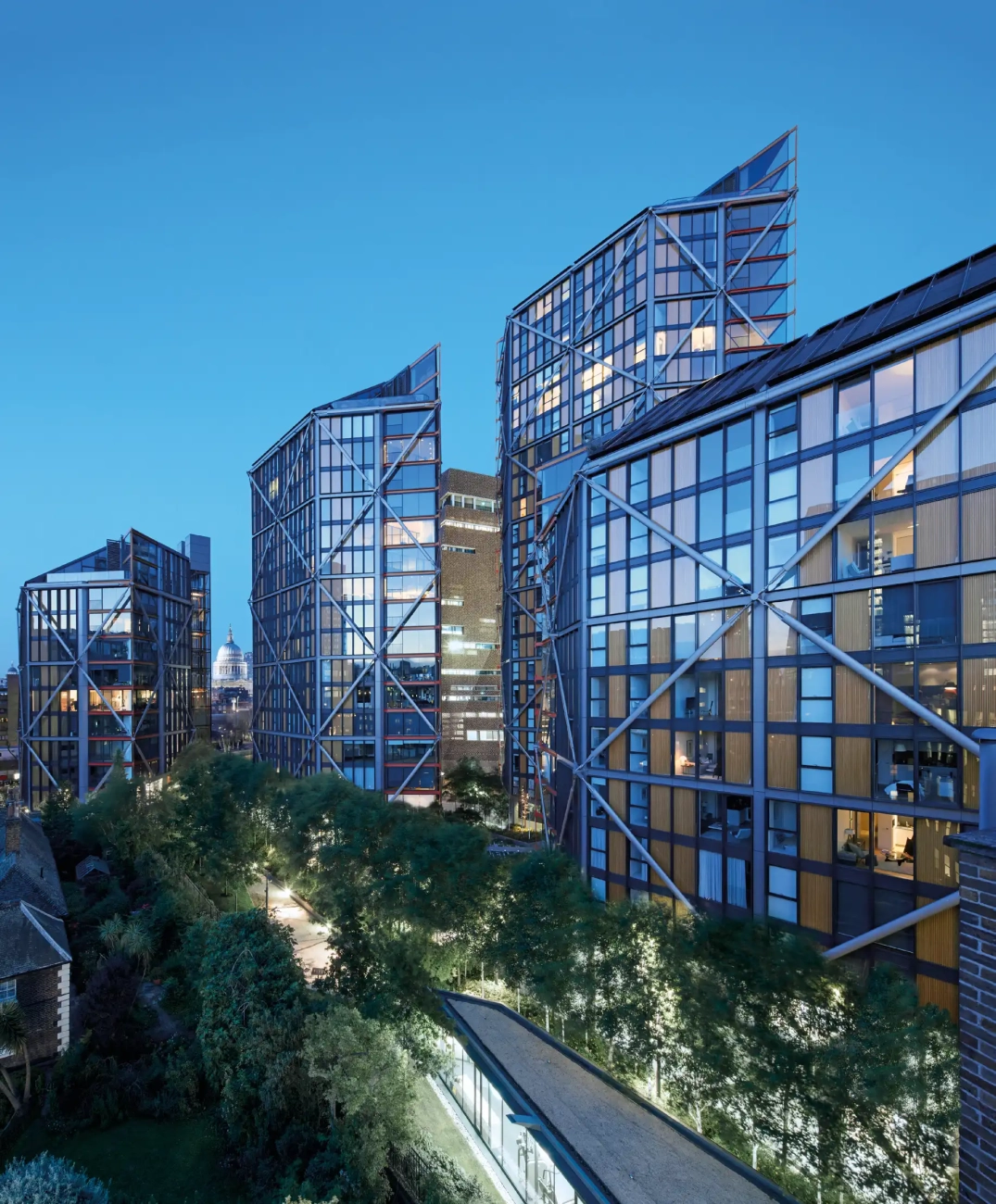
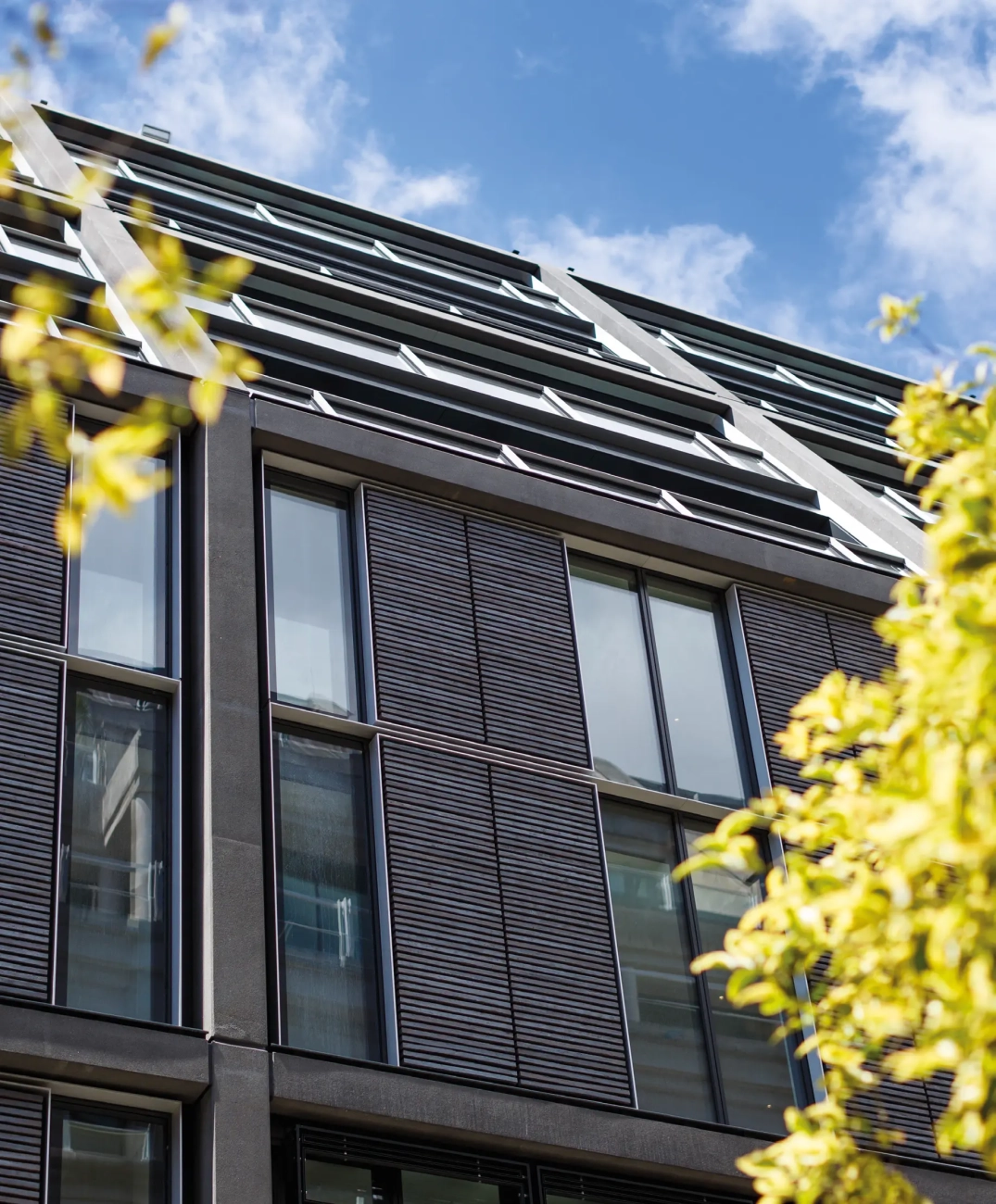
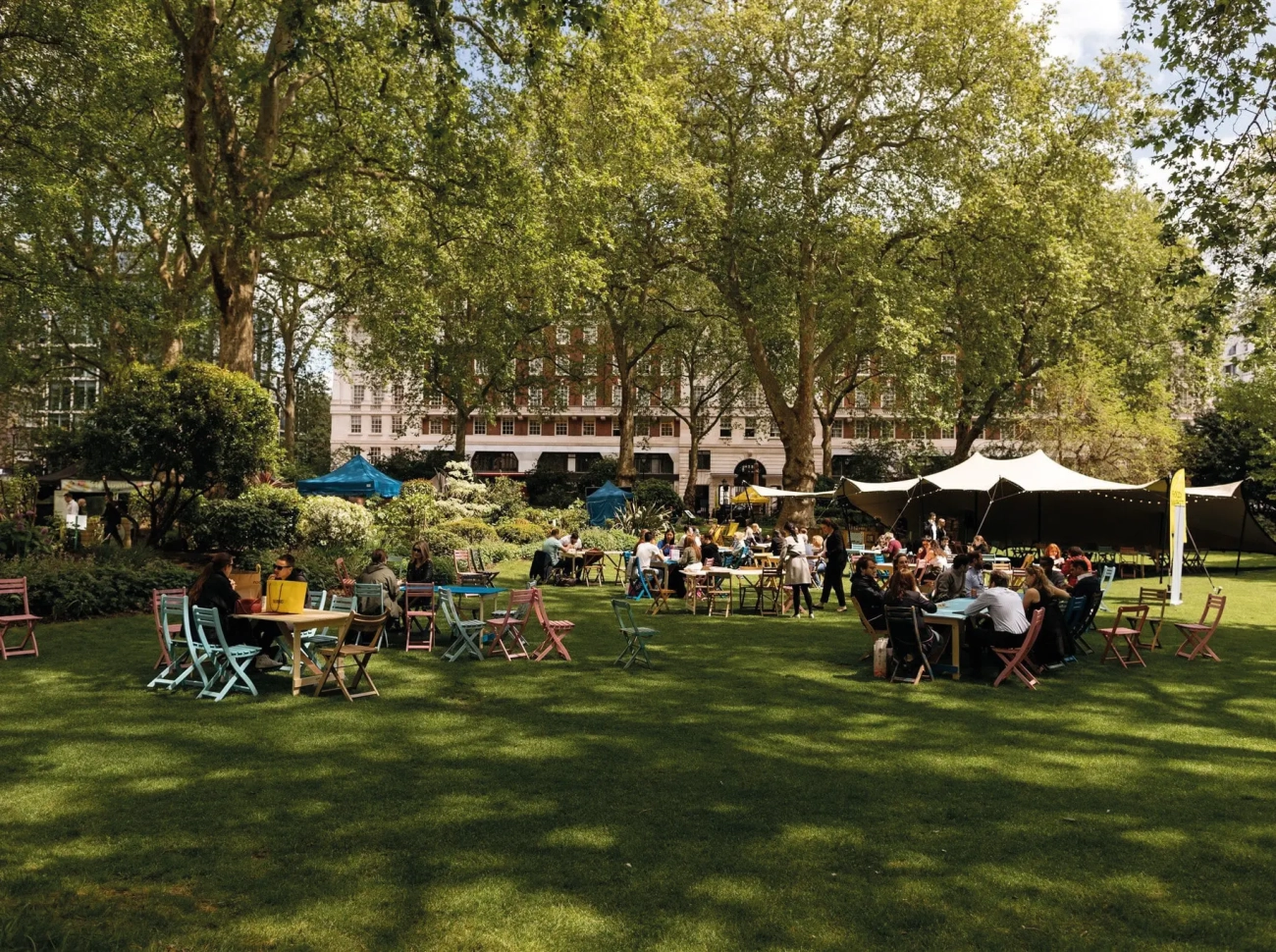
Responsible for the stewardship of Marylebone for the past 500 years, The Portman Estate is a forward-thinking property company with an enduring heritage. The first estate awarded B Corp Certification, it works in ongoing collaboration with tenants, residents and the broader community to promote and protect the long-term success of Marylebone and London’s West End.
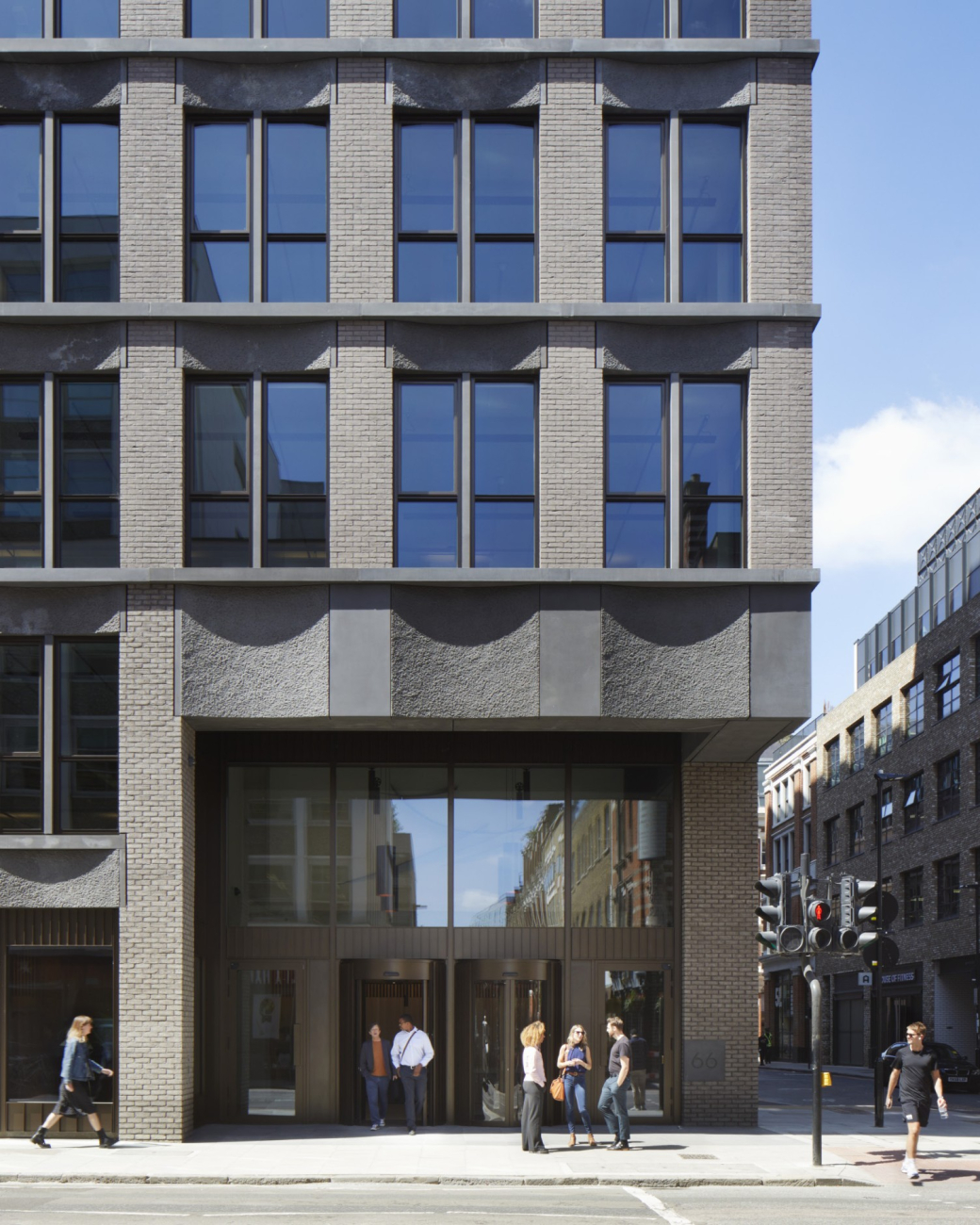
Derwent London is one of the capital’s most innovative office specialist property regenerators and investors, well known for its design-led philosophy and creative management approach. Established in 1984, its projects have helped define the city’s urban landscape, from 80 Charlotte Street in Fitzrovia, White Collar Factory in Old Street to the Tea Building in Shoreditch.
A VISIONARY COLLABORATION
The notable British developers behind Marylebone’s new masterplan have reimagined contemporary urban living in one of London’s most historic neighbourhoods.

Native Land has delivered high-quality, versatile developments across London since 2003, overseeing every aspect from acquisition through to marketing. Past projects include NEO Bankside, Burlington Gate, Holland Park Villas and Cheyne Terrace, while future projects range from the redevelopment of South Kensington Tube station to Kilmuir House in Belgravia.



Responsible for the stewardship of Marylebone for the past 500 years, The Portman Estate is a forward-thinking property company with an enduring heritage. The first estate awarded B Corp Certification, it works in ongoing collaboration with tenants, residents and the broader community to promote and protect the long-term success of Marylebone and London’s West End.

Derwent London is one of the capital’s most innovative office specialist property regenerators and investors, well known for its design-led philosophy and creative management approach. Established in 1984, its projects have helped define the city’s urban landscape, from 80 Charlotte Street in Fitzrovia, White Collar Factory in Old Street to the Tea Building in Shoreditch.


